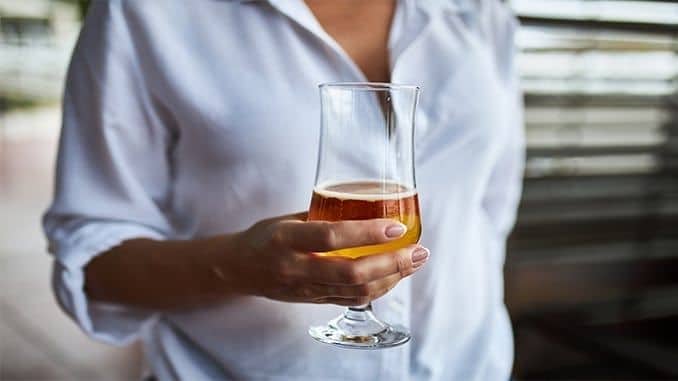
Many are aware of the potential health benefits of wine, but what about beer? Believe it or not, there’s a large body of research that reveals many health benefits associated with beer drinking. So, if you like the foamy beverage, you might be doing your body good. Still, how much is too much? Let’s find out how beer affects health.
Drinking for Millenniums
Tests of ancient pottery reveal that beer-drinking dates back to at least 7,000 years ago in what is today Iran. Some even claim that the invention of bread and beer also led to modern-day civilization. Why? Once we discovered we could plant grain to make food and drink, we stopped wandering around in the wilderness.
How Beer Affects Health
1. Beer Prevents Heart Attack and Stroke
A study by Pennsylvania State University followed 80,000 adults and looked at their drinking habits for six years. What they found was that beer drinking had a positive effect on HDL levels or “good” cholesterol that protects your heart. The amazing thing is that even heavy drinkers had also this benefit. Still, some may have had other problems due to overconsumption of alcohol.
It appears that lager and dark beer might be especially beneficial. The reason is that these brews are rich in antioxidants. Animal studies also reveal that these drinks may inhibit the formation of atherosclerosis ―hardening of the arteries ― which means less chance of stroke and heart attack.
Moderate alcohol consumption has also been linked to an improvement in blood-clotting factors. This could indeed prevent the formation of tiny clots that clog arteries in your heart, neck and brain.
2. Beer Keeps Kidney Stones Away
This is one of the how beer affects health. Dr. Tero Hirvonen of the National Public Health Institute of Helsinki led a study that looked at 27,001 men from age 50 to 69 years who never had kidney stones. After five years, 329 of the men had developed kidney stones. According to the study, “Beer consumption was inversely associated with risk of kidney stones. Each bottle of beer consumed per day was estimated to reduce risk by 40 percent.”
Part of the explanation may be that an increased intake of fluids alone helps prevent kidney stones. However, beer also facilitates the excretion of calcium, which is the main component of most kidney stones.
3. The Beer-bone Sweet Spot
Want stronger bones? Drink more beer. Well, drink one to two beers per day. A study at Tufts University found that moderate beer intake was associated with an increase in bone mineral density. This benefit also was not seen in those who drink liquor. The researchers think that the silicon found in beer might be the reason beer drinker bones are stronger.
There is a catch to this benefit, however. It was also shown that if you consume more than two drinks a day, your bone density declines significantly.
4. Beer Keeps Diabetes Away
Michel Joosten of Wageningen University in the Netherlands teamed up with the Harvard School of Public Health to study 38,031 middle-aged American men. The study also looked at how four-year changes in alcohol consumption affected the risk of developing type 2 diabetes. An increase in intake from light to moderate levels for four years was associated with a 25 percent lower risk of type 2 diabetes.
Moreover, the study revealed that alcohol consumption leads to improved hemoglobin A1C levels, a marker of the average blood sugar level over several weeks. It could also be that alcohol increases adiponectin, a hormone that improves insulin sensitivity, which helps prevent diabetes.
5. Beer Prevents Alzheimer’s Disease
Moderate consumption of alcohol may decrease your chances of developing Alzheimer’s disease by up to 23 percent. This conclusion was drawn from data from more than 365,000 people in 143 studies conducted since 1977. Researchers from Loyola University Chicago Stritch School of Medicine also analyzed the information. The mechanism behind this might be better blood flow to the brain due to alcohol consumption. Plus, beer’s silicon component could indeed be brain-protective as well.
Again, much like the other benefits, things go certainly downhill fast if you overconsume. As soon as you move up to three or more beers a day, your risk for dementia and cognitive impairment increase.
6. Just A Sip Does It
Researchers at Indiana University compared the effect of Gatorade vs. beer on the brains of 49 men. The study participants were given 15 milliliters — about 0.5 ounces — of either drink to taste during a 15-minute period. Using positron emission tomography (PET) scanning, the study showed significantly more dopamine-related activity in those who tasted beer. The effect was especially strong in those who had a family history of alcoholism.
So, even just a sip can cause a reward response. This might offer some insight into why some people who drink develop alcoholism and others don’t. What the study didn’t address was whether a history of beer drinking had a major effect on dopamine release. For example, would the study produce the same results in nondrinkers?
7. Beer Protects Your Energy Powerhouses
This is one of how beer affects health. University of Western Ontario scientists have shown that antioxidants in beer — especially ales and stouts — may protect your mitochondria from damage. Mitochondria are also the structures in your cells that produce energy.
Mitochondrial damage may be associated with a variety of diseases such as cataracts formation.
Other symptoms of mitochondrial dysfunction might be:
-
- Fatigue
- Trouble with balance and coordination
- Muscle aches, weakness and pain
- Intestinal problems, eating and swallowing disorders
- Delayed growth and development
- Heart problems
- Liver malfunction
- Diabetes
- Breathing disorders
- Stroke and seizures
- Eye disease and vision problems
- Hearing difficulty
- Hormonal imbalance
- Weak immune system
8. Beer Might Cure Cancer
Substances like humulones and lupulones are found in hops that are used to make beer. These elements may be able to stop bacterial growth, disease and also inflammation. Researchers are also looking into how these substances might treat cancer. Still, no study has been shown that beer drinking cures cancer — yet.
No Excuses
If you’ve come here looking for a way to justify unhealthy alcohol consumption, you might also be disappointed. Although beer has some amazing health benefits, any positive effect disappears with overconsumption.
Just like too much oxygen can damage your lungs, too much beer can cause a wide variety of serious problems, such as:
- Heart muscle damage
- Arrhythmias: Abnormal heartbeat
- Stroke
- Liver disease: Fibrosis, hepatitis and cirrhosis
- High blood pressure
- Pancreatitis
- Cancers of the mouth, throat, esophagus, liver and breast
- Alcoholism or addiction
How Much Beer Is Safe To Drink?
There’s a lot of debate about how much alcohol is safe to consume; however, some general guidelines exist. For healthy adults, the limit is up to one drink a day for all adult women and men older than age 65. Men less than age 65 may drink one to two beers per day. One beer is also considered to be 12 fluid ounces with a 5 percent alcohol content or less. If your favorite beer is stronger, you should also decrease the volume you consume.
Moreover, It’s worth noting that the health benefits of beer drinking disappear if you go over these limits. Plus, if you think you can drink seven beers once a week and still get the same benefit, think again. The suggested limits are per day, and you can’t “save them up” for the weekend.
When it comes to legal blood alcohol limits and driving, the standards are different. Each country and locality may have different laws regarding the legal limit. So, those are how beer affects health.
Conclusion
In conclusion, there is much evidence showing that moderate beer consumption may be beneficial to your health. Most doctors, however, do not recommend that you start drinking if you’re a nondrinker. Still, one to two beers once in a while won’t hurt you. Beer may also even make you live longer. Cheers!
For healthy and delicious recipes for St. Patrick’s Day, pick up your free copy of the St. Patrick’s Day Cookbook, here!



